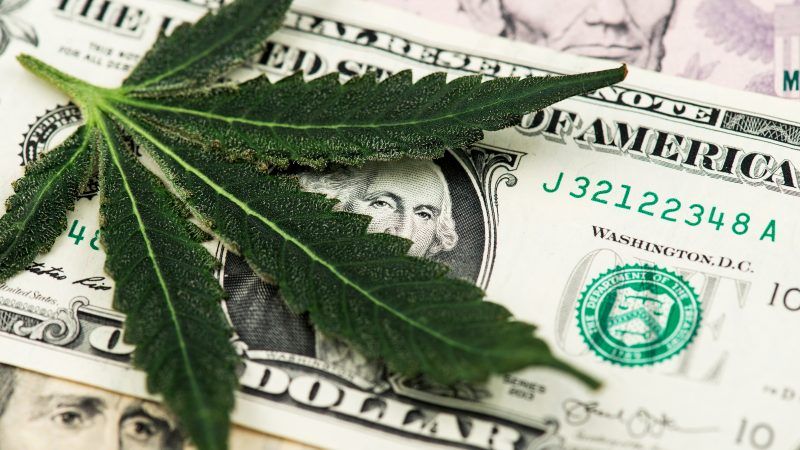Cannabis Companies Explain To Congress Why Denying Them Banking Access Is Bad for Law Enforcement
Senate hearing shows, once again, why marijuana needs to be decriminalized at the federal level.

While popular support for marijuana legalization continues to grow, the federal government continues to prevent state-legal cannabis companies from legally using banks to run their businesses, file their taxes, and pay their employees. On Tuesday, the U.S. Senate Committee on Banking, Housing, and Urban Affairs allowed cannabis entrepreneurs and other stakeholders to explain the challenges they face by doing business in cash.
Rachel Pross, chief risk officer for MAPS Credit Union, told the committee that it is nearly impossible to avoid indirect connections to revenue from state-legal cannabis. "The simple reality is that growers and retailers in the cannabis industry do not operate in a vacuum," Pross said. "Instead, like almost every other business, the industry is dependent upon any number of vendors and suppliers to function."
However, "under the existing status quo, a credit union that does business with any one of these indirectly affiliated entities could unknowingly risk violating the federal Controlled Substances Act, USA Patriot Act, Bank Secrecy Act, and/or the Racketeer Influenced and Corrupt Organizations Act, among other federal statutes," Pross said.
That banks and credit unions are still scared to work directly with legal cannabis companies creates all sorts of problems for those in the industry.
"Without access to the banking system, legal cannabis businesses are forced to operate in the shadows, dealing in large amounts of cash. This puts a robbery target on the backs of workers and creates a safety hazard for communities," said ranking committee member Sherrod Brown (D–Ohio) in his opening statement. "And getting paid in cash means it's difficult to get a credit card, prove your income to get a loan, or even keep your personal bank account."
As Reason has previously reported, some military veterans have been denied home loans because the federal government does not consider working in legal state cannabis businesses to be a stable form of income.
Ironically, forcing these companies to be all-cash businesses "can also make it harder to monitor transactions and combat money laundering," Brown pointed out.
John Lord, CEO and owner of LivWell Enlightened Health, Colorado and Oregon's leading marijuana dispensary, said that limited banking options created a risky situation for him. "I had no choice but to travel to the Internal Revenue Service office in Denver with more than $3 million in cash in order to send the federal government our taxes from our state-legal cannabis business," Lord's testimony stated.
He added that he has had accounts closed at over a dozen financial institutions during his 10 years with the company.
"Imagine running a manufacturing, wholesale, and retail operation with hundreds of employees and having to make all payments, including payroll, in cash. It is difficult and, frankly, it is dangerous. This is something hundreds, if not thousands, of state-legal cannabis companies have had to struggle with," Lord said.
"The states are leading on this issue, and the federal government has failed to respond," Sen. Cory Gardner (R–Colo.) said in his testimony. "It has closed its eyes and plugged its ears and pretended the issue will go away. It won't."
"Being categorized as a Schedule I drug means that the possession, distribution, or sale of marijuana and other marijuana-derived products is illegal under federal law, and any proceeds from cannabis-related activities remain subject to U.S. anti-money laundering laws, such as the Money Laundering Control Act," Sen. Mike Crapo (R–Idaho) explained at the hearing on Tuesday.
New legislation called the SAFE Banking Act would allow banks to do business with cannabis companies without running afoul of federal money laundering laws.


Show Comments (15)